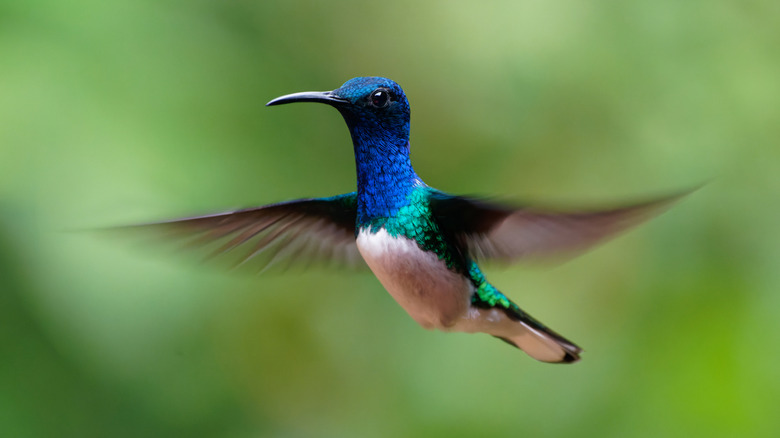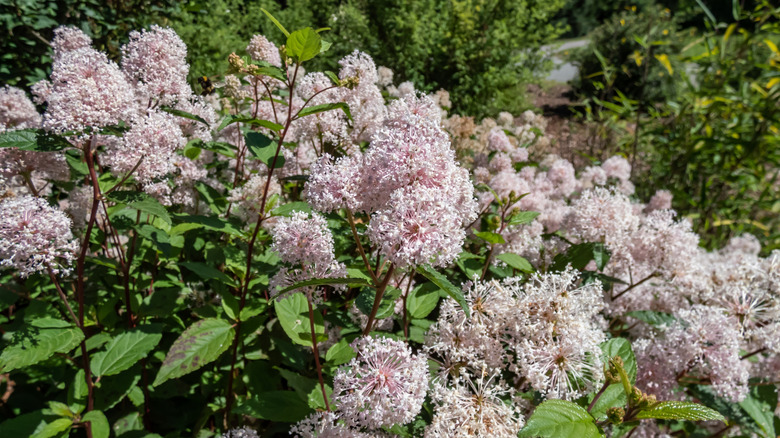The Sweet-Smelling Flowering Shrub That's A Must-Plant For Hummingbirds And Pollinators
Want to attract more hummingbirds and other pollinators to your yard? The popular pollinators depend on visual cues, like abundant blooms, size, and color, to find the nectar that makes up their diet, so your selection of plants is important. If you're looking for something different, consider planting New Jersey tea (Ceanothus americanus) bushes. During the Revolutionary War, colonists brewed tea from the leaves of abundant Ceanothus americanus as a replacement for scarcer imported teas, hence its name. While you can still brew a cup of tea from the plant, a more likely use is filling out your garden with pollinator-friendly plants.
New Jersey tea bushes are covered in thousands of small white flowers, attracting hummingbirds as well as bees, beetles, moths, and butterflies from May to June. Hardy in zones 4 to 8, fully grown bushes are typically 3 feet tall and 5 feet wide, offering a compact shrub option for your yard. New Jersey tea is a sweetly fragrant addition to a native plant garden to attract hummingbirds and a good replacement for a Chinese native, the butterfly bush, that's commonly used in gardens to attract pollinators.
New Jersey tea bushes grow naturally in woods and meadows. In the garden, these deciduous perennial plants grow into attractive shrub borders, are standouts on their own, and do well on slopes that need erosion control. The shrubs provide a habitat for the larvae of several types of butterflies, and the flowers supply nectar for native bees and hummingbirds. Songbirds eat the seeds that burst out of pods in June and July. In the off season, New Jersey tea's yellow stems add color to the landscape.
Growing New Jersey tea in a well-rounded garden
Because of the extensive root system that helps make New Jersey tea hardy, the bushes are difficult to transplant, so you'll have better luck growing the shrubs from seeds or seedlings started at a nursery. They may take two to three years to bloom the first time. After that, the bushes bloom prolifically in the right conditions. The bushes prefer full sun but also do well in partial shade and tolerate a range of soil types, from sandy to rocky, with a pH between 5.0 and 8.0. If you don't know your soil's pH, you can send a sample to your local extension office or buy home pH testers. Ceanothus thrives in moist, well-drained soil but tolerates occasional dry conditions. In wet soil that doesn't drain, New Jersey tea is prone to root rot and canker disease. Leaf spot and powdery mildew can also cause problems.
Planting New Jersey tea will enhance your garden's attractiveness to pollinators like bees and hummingbirds, but there are other ways you can also help. Creating a balanced landscape helps sustain the declining population of pollinators suffering from overuse of pesticides and smaller habitats. Provide a water source with places for pollinators to land while they drink. Leave your fallen leaves un-raked in the fall — pollinators will use them for food and shelter. When caring for New Jersey tea and other plants in your yard, avoid the use of pesticides. If you have to use them, apply them at night. Assure that there are nesting spots for birds and bees, like trees, fallen logs and bee boxes, mixed into your pollinator garden.

